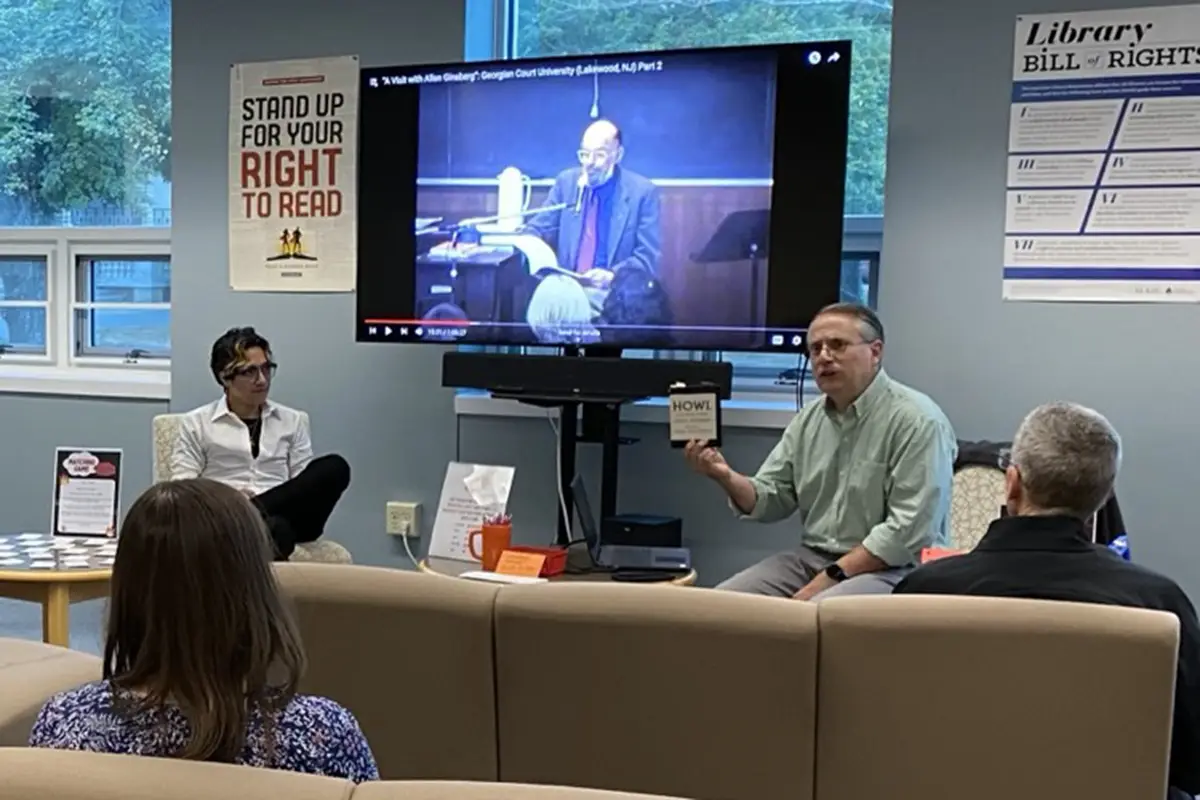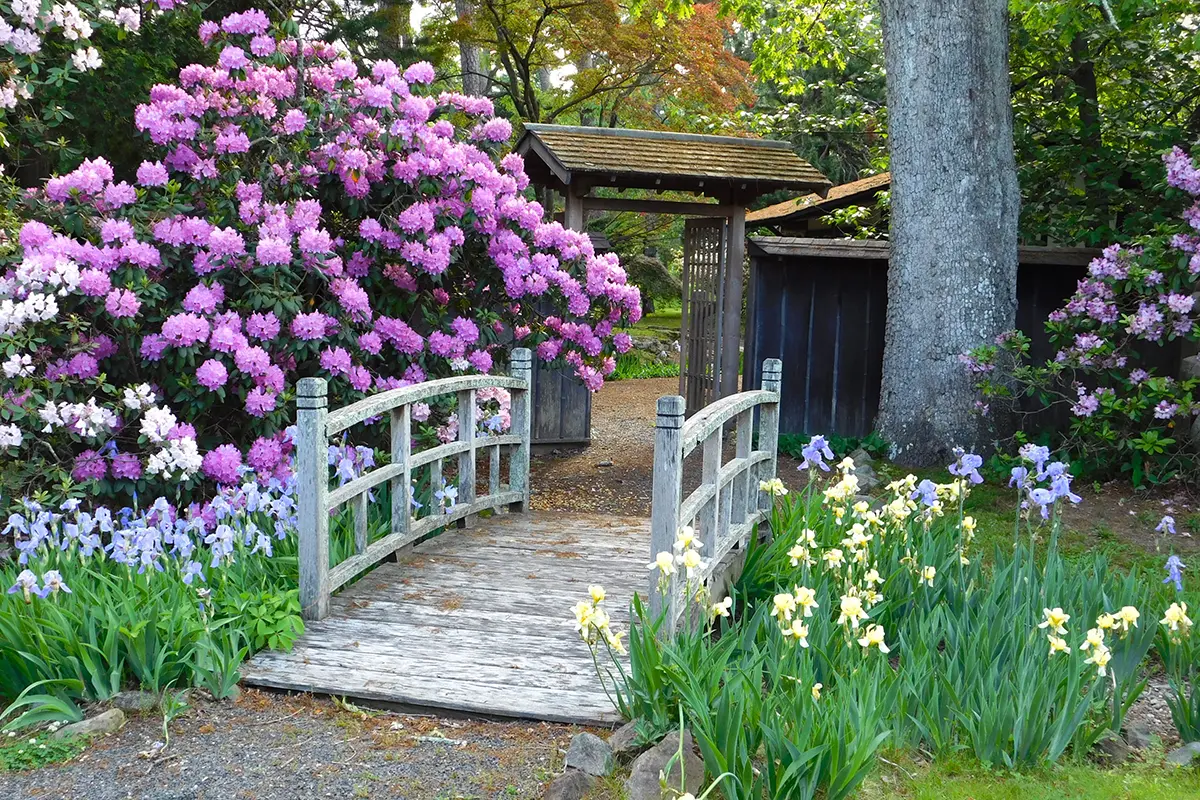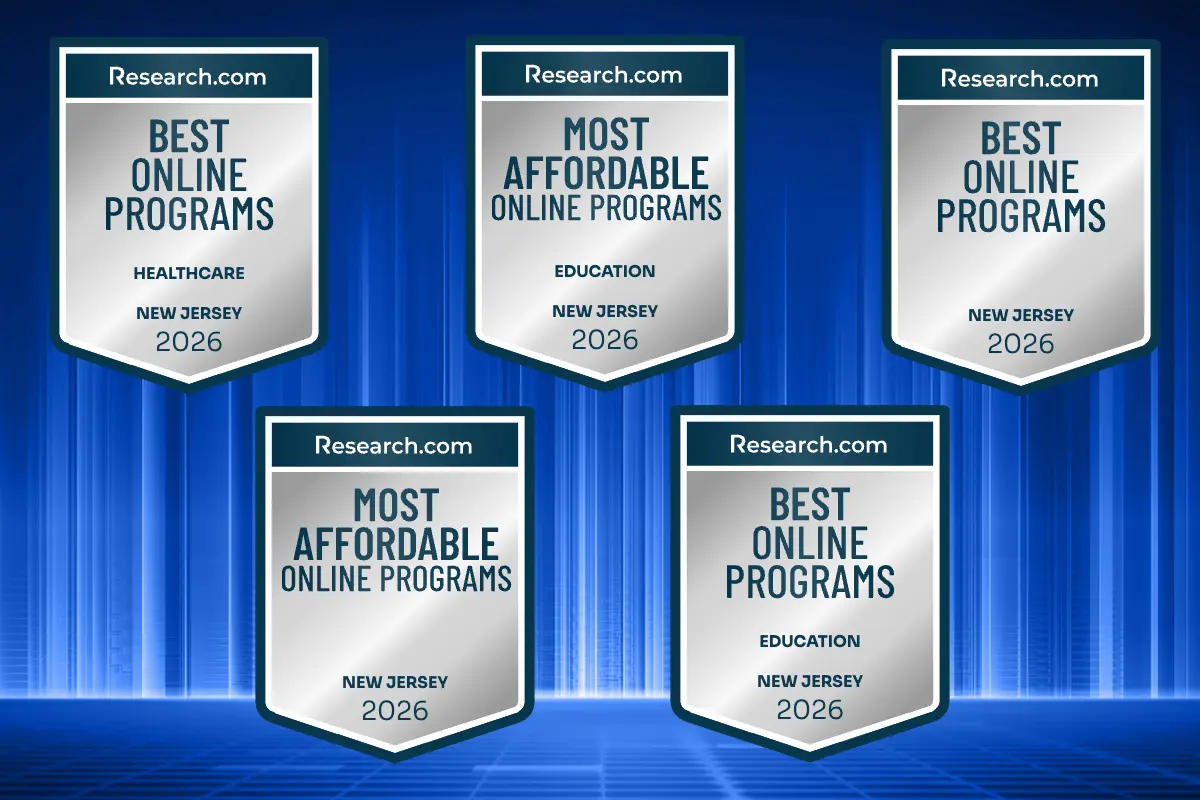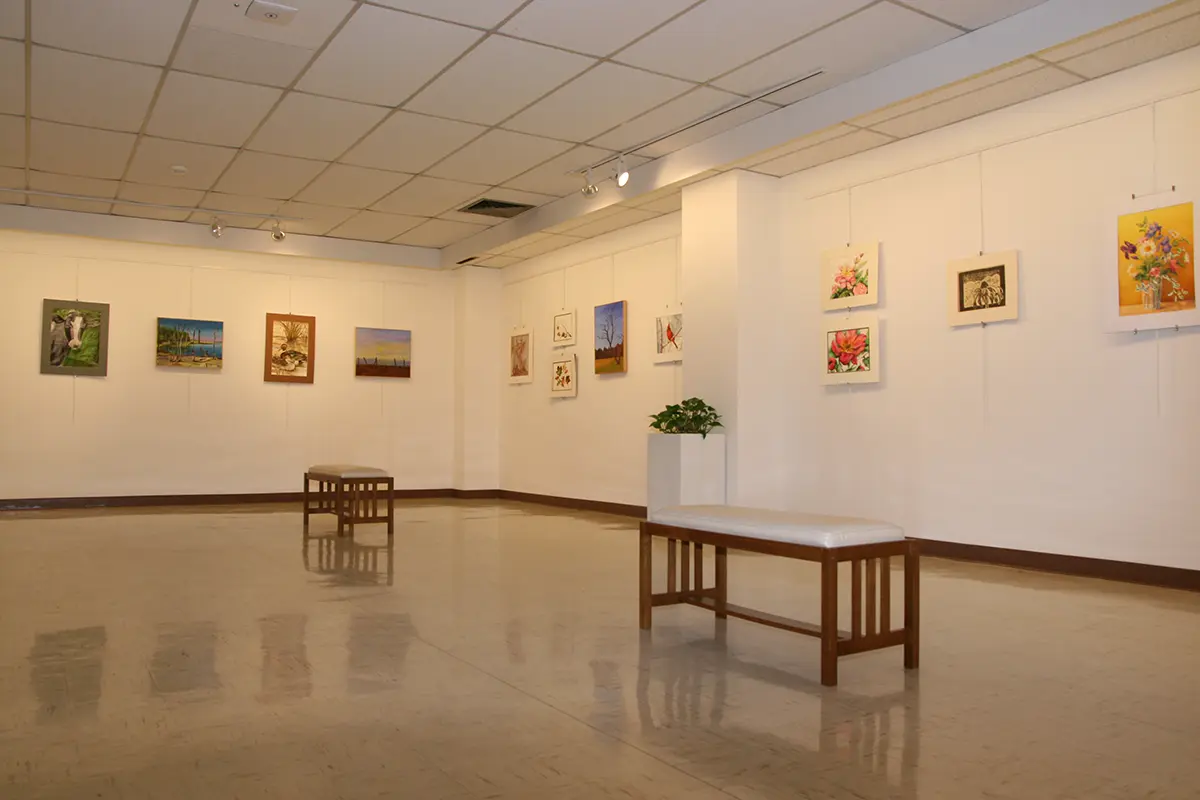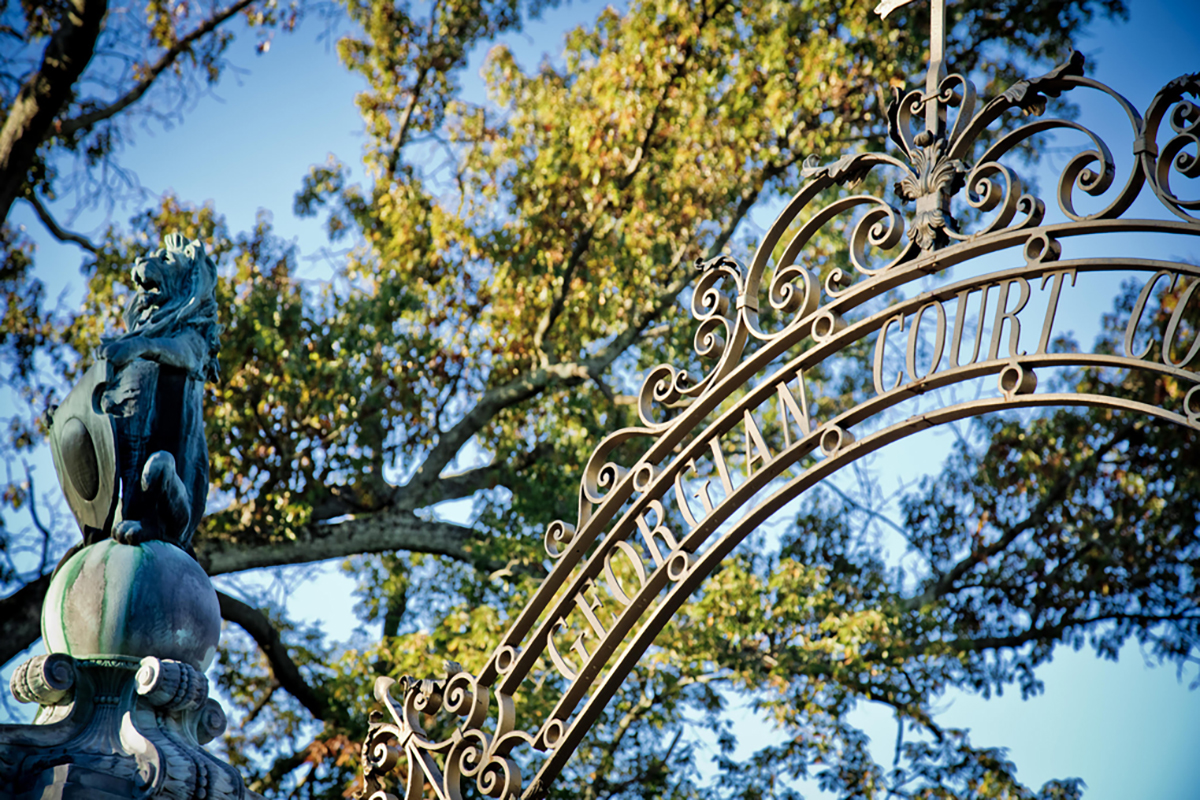In 1995, renowned poet Allen Ginsberg spent over two hours engaging Georgian Court University students in an intimate and thought-provoking discussion. Nearly 30 years later, Dr. Paul Cappucci, Professor of English, and Jimmy Woo, Class of 2024, embarked on a summer research project to restore and share this extraordinary moment in the university’s history. Their work preserved and transcribed the recording of Ginsberg’s visit, now accessible on YouTube, bringing his insights to a new generation.
The project began when Dr. Cappucci rediscovered a VHS tape and DVD of Ginsberg’s visit. “We had Allen Ginsberg visit our campus in the ’90s, and I knew for years there was a videotape of it,” Dr. Cappucci shared. “I’d been sharing it with my classes, but I wanted to make it more accessible and create a transcription. Ginsberg spent over two hours with our students, which is almost unheard of.”
Jimmy Woo eagerly joined the project. “Dr. Cappucci asked me to help near the end of the semester. I’ve always enjoyed his classes, and when he offered me this opportunity, I couldn’t say no,” Jimmy explained.
Dr. Eric Wurmser and Dr. Gail Holian, who co-taught a course on British Romantics, originally made Ginsberg’s visit possible. “Although Dr. Wurmser is a physician, he has a deep interest in poetry, and Dr. Holian is a literature professor,” Dr. Cappucci noted. “Their collaboration was unique. Dr. Wurmser even drove to New York to pick Ginsberg up and bring him to campus.”
Exploring Allen Ginsberg’s Connection to Lakewood, New Jersey
During their work, Dr. Cappucci and Jimmy became increasingly curious about Allen Ginsberg’s references to Lakewood, NJ, in his poem, Kaddish. The poem recounts a pivotal moment in Ginsberg’s life when, as a teenager, he brought his mother to a rest home in Lakewood. “That poem is incredibly powerful, as it reflects on his mother’s life, recounting a moment when he tried to help her during a difficult time but came to the painful realization that she was beyond his help,” said Dr. Cappucci.
“The project turned into a Ginsberg seminar for the two of us over the summer,” Dr. Cappucci continued. “We researched rest homes in Lakewood in hopes of finding the one he took his mother to. It was fascinating to dig into the area’s history and connect it to Ginsberg’s experiences.”
Jimmy likened the research to a treasure hunt. “We found old newspaper clippings and lists of rest homes in the area. While we couldn’t pinpoint the one he was referring to, imagining what the town was like during that time — where he might have walked after arriving by bus — was a rewarding experience.”
Their collaboration included visits to local historical societies and libraries and trips to sites tied to Ginsberg’s life. “We visited Paterson, where he grew up, including the historic district by the Paterson Falls,” Jimmy shared. “We also visited his grave in Newark. Seeing these places brought authenticity and tangibility to our research.”
Transcribing Allen Ginserg’s Talk
The technical work involved converting the aging DVD into a digital format and transcribing Ginsberg’s words. “I converted, restored, and transcribed the recording,” Jimmy said. “The final transcription was 14,000 words with footnotes and timestamps for when Ginsberg read his poems. It was meticulous work, including removing static and syncing audio and video.”
Dr. Cappucci praised Jimmy’s efforts: “He even removed background noises like coughing, making Ginsberg’s words clearer. We met weekly to review his progress and ensure accuracy.”
While most of the transcription was accurate, some phrases and names were challenging. “The Allen Ginsberg Estate helped clarify references and spelling,” Dr. Cappucci noted.
Their work garnered the attention of the Allen Ginsberg Estate and the William Carlos Williams Society, which shared the project with a broader audience.
A Celebration of Poetry
This project is part of Georgian Court’s history of celebrating literature and the arts. Each year, the university celebrates National Poetry Month with its annual series, “A Dose of Poetry,” and hosts other notable poets, including Robert Pinsky, Patricia Smith, and Mark Doty.
Dr. Cappucci highlighted the significance of this project: “There’s so much history and talent that comes from New Jersey. Projects like this remind us how alive stories can feel when we revisit them.”
Jimmy emphasized Ginsberg’s timeless relevance, “In his talk, he spoke about being present, enjoying life as a gift, and navigating the noise of the world. His ideas are still so meaningful today.”
A Lasting Legacy
Dr. Cappucci credited Georgian Court University’s Summer Research Grant for making this project possible. “This grant allowed us to work together on this,” he said. “It’s designed to support faculty-student collaborations, and I wouldn’t have pursued it without knowing Jimmy was someone I could rely on.”
The final product—a fully restored and transcribed recording of Allen Ginsberg’s talk—now serves as a resource for students, scholars, and poetry enthusiasts worldwide. Through their work, Dr. Cappucci and Jimmy ensured that Allen Ginsberg’s voice continues to resonate.

